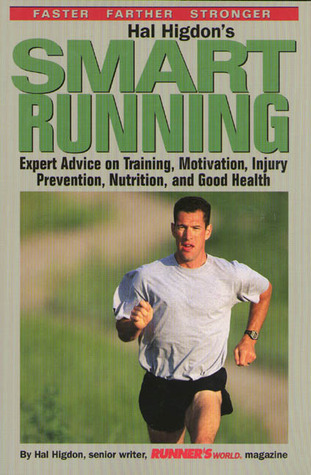The book is all Q&A, and many of them are questions I hadn't thought to ask. It's great.
A few pertinent points I pulled from it:
YOU are the only one who knows you - and YOU need to be aware of what is going on with your body and adjust your training and plans accordingly.
There are some great exercises, training plans and strategies in the answers to questions in this book.
Train for the conditions you will race - hilly? run hills. flat? run flat. humid? cold? hot? Train in those conditions or simulate them if you can. Training hilly for a flat race is just as unproductive as training flat for a hilly race. When I thought that over, it made good sense.
The plantar fasciitis exercises he gives are something you get naturally with the barefoot shoes...and he recommends running a small portion (i.e. in moderation) of training during the week barefoot (on grass, rubber track, etc.) I'd switched away from Vibrams (which I'd been wearing for 4 years) a couple months ago to solely running in shoes. Prior to running shoes, I had some minor knee issues once and a while and sore feet after long runs. I knew I'd have to wear shoes at some point to do my longer runs, but I phased out the barefoot shoes completely. That was a mistake. I'd initially kept them in my routine for a couple days a week. Now I have to start all over -and I will definitely start all over, because, for me, it is absolutely worth it. Running solely in running shoes, my knees are worse, I'm feeling the beginnings of PF pain on and off, I've been flirting with shin splints, and something is definitely off in such a way that suggests I'm off balance. The BF shoes (introduced slowly and carefully!!) help a couple things - they force you to land lightly and evenly (or you'll really suffer!), and they help build foot flexibility (on dirt/gravel paths/trails)... this seems to stretch and strengthen the plantar fascia in the same way the recommended exercises do. So to me, this teaches me that when something is working 80% of the time, tweak the 20% instead of changing everything completely.
Overdoing it with long runs too soon in training for a race increases risk for injury and lack of strength/stamina for the race itself.
Pace yourself, pace yourself, pace yourself. Embrace the process instead of pushing mindlessly hard for a goal or you will get to that goal and not know what to do next, or be too burnt out/injured/hating running to even want to set another.
Great book, lots of questions addressed and it's well worth borrowing from the library or buying and passing around to running friends.

